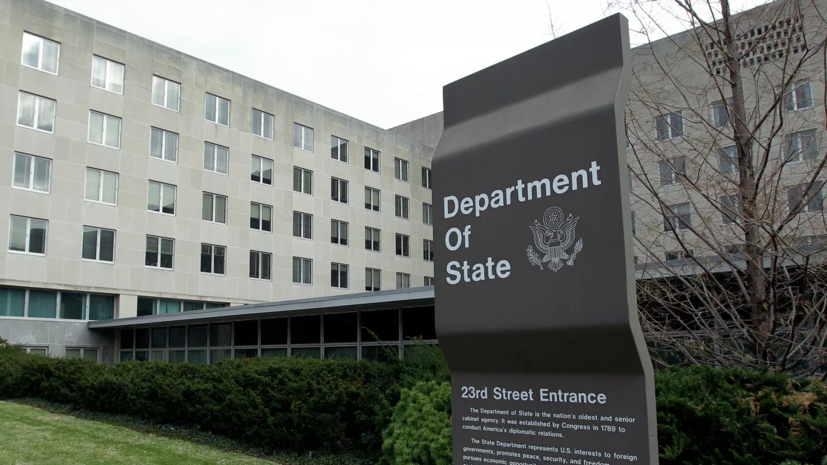US Backs Ukraine in Strikes on Russian Territory
The United States has announced its support for Ukraine's self-defense against Russian military positions within the Russian Federation. The head of the press service of the American State Department, Matthew Miller, shared that Secretary of State Antony Blinken emphasized continued backing for Ukraine during a telephone conversation with Ukrainian Foreign Minister Dmitry Kuleba. Blinken’s statement underscored the United States' commitment to enable Ukraine to defend itself against aggressive actions from Russian territory.
Earlier, Ukrainian President Vladimir Zelensky acknowledged receipt of a message from the United States regarding the use of American-supplied weapons to strike Russian positions, calling it a "step forward." According to The Wall Street Journal, this policy shift allows Ukraine to utilize HIMARS MLRS, GMLRS missile systems, and artillery to target Russian areas adjacent to the Kharkiv region. The Biden administration’s decision marks a significant change, permitting limited strikes on Russian soil with U.S.-supplied weaponry.
Escalation between NATO and Russia
Military experts suggest that Blinken’s words confirm Washington's active role in formulating Kyiv's strategy regarding attacks on Russian territory. Military expert Alexander Khrolenko emphasized that Ukrainian forces rely heavily on NATO intelligence and cannot operate advanced systems like ATACMS or Patriot missile systems independently. The direct involvement of American or NATO personnel underscores the collaborative military operations between the U.S. and Ukraine. This alignment is further mirrored in the operational coordination on the battlefield, overseen by Pentagon structures and other NATO countries.
Similarly, Alexey Mukhin, the General Director of the Center for Political Information, characterized Washington’s permission as a formalization of already existing ties between U.S. and Ukrainian military operations. He believes this measure signifies a de facto involvement of NATO in the conflict against Russia. While this regulatory change marks an institutional acknowledgment, it also underscores the geopolitical complexities and heightened escalations it brings.
Security Agreements and European Reactions
In a related development, the U.S. and Ukraine are finalizing security guarantees, as indicated by the recent conversation between Blinken and Kuleba. This agreement is expected to be one of several Kyiv has secured with NATO members, signifying long-term U.S. support in areas like military training, intelligence sharing, and economic assistance. The Financial Times reported that this significant pact might be signed during the upcoming G7 summit in Italy. Experts suggest that Washington’s current stance on allowing Ukrainian strikes is part of this broader strategic framework aimed at buttressing Ukraine amidst challenging battlefield conditions.
Meanwhile, reactions within Europe, such as those from Italian Foreign Minister Antonio Tajani, reflect cautious support for Ukraine. At a National Conference, Tajani highlighted the risks associated with increased militarization, warning about the potential for a broader conflict. While Italy remains firm in defending Ukraine, Tajani stressed the importance of maintaining peace and pursuing diplomatic solutions, citing the example of recent efforts to mediate between Israel and Hamas.
- The decision to allow Ukrainian forces to strike Russian territory has been met with mixed reactions, signifying a pivotal moment in U.S.-Russia relations. Military collaborations between the U.S. and Ukrainian forces now involve sophisticated systems like ATACMS missiles and Patriot anti-aircraft systems, pointing towards a higher degree of operational integration. As noted by military expert Alexander Khrolenko, these systems cannot be effectively operated without direct support from American or other NATO personnel, highlighting the depth of U.S. involvement on the battlefield. Alexey Mukhin's assertion that NATO’s involvement signifies a broader conflict echoes concerns expressed by other experts about potential escalations. Moscow’s response may escalate if these strategic adjustments continue, reflecting the fragile nature of current geopolitical tensions. Mukhin did not rule out asymmetric responses from Russia, warning of a new round of escalation stemming from U.S. and NATO decisions. As the U.S. and Kyiv approach the signing of a critical security agreement, the European stance remains vigilant yet cautious. Italian Foreign Minister Antonio Tajani's remarks reflect a dual commitment to defend Ukraine while emphasizing peace and diplomatic resolutions. The analogy drawn with the Israeli-Palestinian conflict underscores the broader context of fostering stability and protecting civilian populations, amidst international conflict dynamics.






